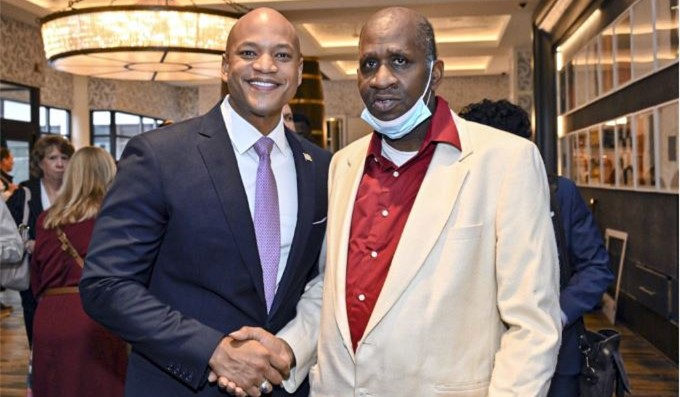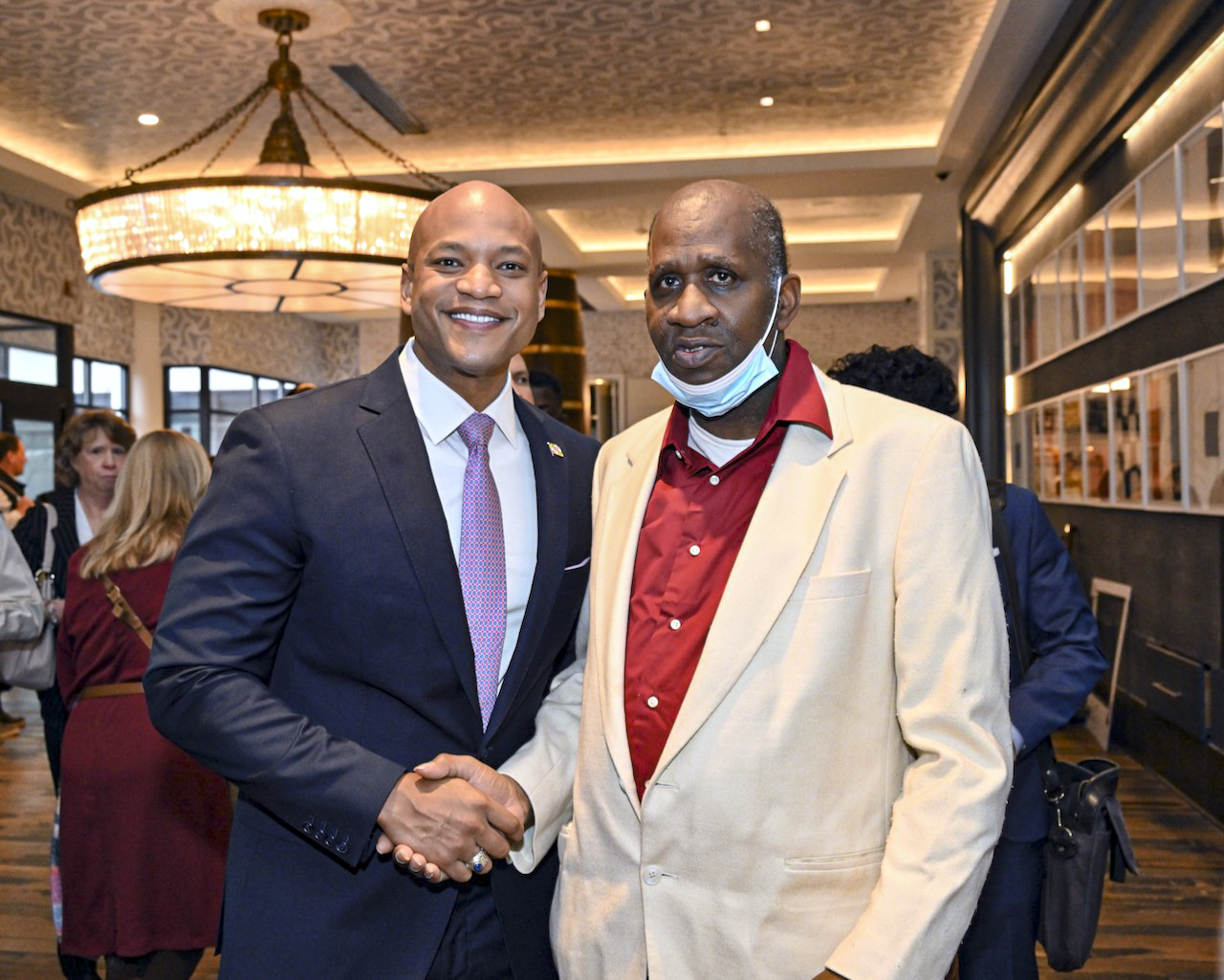2024 Legislative Wrap-up
Provided by The Arc Maryland and MACS
The Maryland General Assembly completed its work for the 2024 Legislative Session and adjourned at midnight on April 8, 2024. Of the 2,714 pieces of legislation filed, 1,053 were passed by Sine Die. The $63.1 billion state budget had a bumpy road to passage, with the House and Senate disagreeing initially on the best way to accomplish budget balance and how to increase state revenues for this year and the next few years as we try to manage the needs of the state without Pandemic-era federal financial assistance.
As we went into the session, our highest priority was the DDA budget. Our system has been challenged by increased operating costs associated with inflation and major workforce shortages. While new rates for services have been in process for close to 10 years, there are still issues with day service rate finalizations and shortfalls in the appropriations for two of the highest utilized services of Community Living and Day Services. The Developmental Disabilities Coalition asked the Governor for a 3.5% funding increase and additional progress on the funding “glide path” to get our rates to 100% funding by FY2026.
Before the Governor released the draft FY25 budget, analysts projected the state faced a $761 million revenue deficit for FY25, which was expected to balloon to $2.7 billion by 2029 without action. This dire circumstance was influenced by many factors, including the end of federal pandemic assistance, lower-than-anticipated consumer spending, and lower-than-expected tax revenues.
After 90 days of hard work and debate, there were several notable outcomes of the legislative session that you can read about in the reports below from The Arc Maryland and Maryland Association of Community Services
Read their full reports at:
Our thanks to them and the other members of the Developmental Disabilities Coalition – People on the Go, and Disability Rights Maryland – for their tireless work throughout the session.
Development Disabilities Day In Annapolis
In February, a team of people we support, family members, board members, and staff from The Arc Baltimore joined advocates from across the state to promote policies and funding for our community. Developmental Disabilities Day in Annapolis drew hundreds to begin the day with a program and briefing.
Governor Wes Moore addressed the group with warm words of appreciation and an account of his priorities and initiatives to support our work. Additional speakers included Lieutenant Governor Aruna Miller, Secretary Beatty of the Department of Disabilities, Secretary Herrera Scott of the Department of Health, Senator Guy Guzzone, Senator Cory McCray of Baltimore City, and Delegate Guyton of Baltimore County. DD Coalition members briefed advocates on the budget and priority legislation and then dispatched all for meetings with our elected officials.
Our district teams went to 28 meetings to advocate for our agenda. Our representatives and their staff were receptive and responsive to our concerns. We appreciate their time and attention to our issues, including Senate President Bill Ferguson who personally welcomed constituents from his district, including self-advocate Tavon Hadley, who attends every year.

2022 GENERAL ASSEMBLY
This year’s General Assembly session runs from January 12th to April 11th. While the session is largely being conducted on a remote basis, the Developmental Disabilities agenda is broad.
GOVERNOR'S PROPOSED FY23 BUDGET
Maryland’s General Assembly Session Concludes
Maryland’s General Assembly finished their 90-day session on April 11th. The developmental disabilities (DD) community advocated mightily. Below are the session highlights as extracted from reports provided by The Arc Maryland, the Maryland Association of Community Services (MACS), and the Maryland Developmental Disabilities Council.
BUDGET SUMMARY
The Governor’s initial budget included a 4% rate increase for DD community services and other DD priorities. Thanks to grassroots advocacy by the DD Community, and critical leadership in the Senate and House, the Governor included an additional 4% rate increase in a Supplemental Budget. This unprecedented 8% increase comes at a critical time as The Arc Baltimore and other providers continue to recover from the pandemic and face crisis-level staffing shortages. See below:
Developmental Disabilities Administration (DDA) Budget Highlights
Rate Increase - $114 million to provide an 8% rate increase for DDA community services.
Transitioning Youth - $18,648,167 to support 566 eligible youth at least 21 years of age who have exited high school.
Emergency Funding - $791,200 will be available to provide community supports and services to approximately 32 people in emergency situations.
Waiting List — Crisis Resolution - $9,808,315 for community supports for 214 people on the DDA Waiting List with the most urgent needs—46 of whom are in Crisis Resolution.
Waiting List Equity Fund - $550,507 for the Waiting List Equity Fund that will be available for 36 people on the DDA Waiting List with the oldest caregivers.
DSS Aging Out Placements - $422,152 for 20 youth who are aging out of Department of Social Services programs and entering DDA funded community supports.
Low-Intensity Support Services - $5.5 million for short-term, low-cost support to about 2,800 people with DD and families.
Note: Additional funds are included to continue providing services for people already receiving services. DDA’s FY23 Community Services budget totals over $1.5 billion.
State Department of Education Budget Highlights (see full MSDE budget report at MD DD Council)
Autism Waiver - $30.7 million, an increase of $2.8 million so an additional 100 children with autism can receive services.
Maryland Infants and Toddlers Program - $14.6 million, an increase of $4.3 million.
LEGISLATIVE HIGHLIGHTS
Many bills were passed to improve the lives of Marylanders with developmental disabilities including legislation to put an end to the practice of seclusion in schools (and limit restraint), several childcare-recovery bills, school discipline reforms, anti-discrimination bills, the creation of commissions to examine the healthcare workforce and DORS among other important charges, the creation of a new legally recognized alternative to guardianship known as Supported Decision Making, a commitment to require seizure action plans and training for teachers who support students with seizure disorders in schools, a commitment to “end the wait” for people with disabilities on the state’s Medicaid community services waiting lists, and several human rights bills. Further details on a sampling of the bills follow:
SB 559/HB 529 - Estates and Trusts - Supported Decision Making formalizes supported decision making agreements to make sure that people accept them. It creates clear guidelines and protections in making these agreements. Supported decision making allows a person to continue to make their own decisions. It recognizes that people use support to do so. It preserves a person’s right to make their own choices and decisions. It recognizes that just like people without disabilities, people with disabilities rely on “supporters” - the people who they trust to help them make, communicate, and effectuate their decisions.
SB 636/HB1403 - Maryland Department of Health - Waiver Programs - Waitlist and Registry Reduction (End the Wait Act) requires the Maryland Department of Health to develop plans to reduce the waitlists for all waiver programs, including the Autism Waiver registry and the DDA Waivers, by 50% beginning in Fiscal Year 2024. It also requires the Governor to fund the services.
SB0291 - Bond Initiative to provide $170,000 for acquisition, planning, design, construction, repair, renovation to facilities of The Arc Baltimore.
HB1255/SB0705 Education - Physical Restraint and Seclusion - Limitations, Reporting, and Training requires that a public agency may not use seclusion as a behavioral health intervention for a student and stipulates that neither a public agency nor a non-public school may use physical restraint on a student as a behavioral health intervention unless the restraint is necessary to protect the student or another from imminent serious physical harm and other less intrusive, nonphysical interventions have failed or have been demonstrated to be inappropriate for the student.
View the complete legislative session wrap-up reports with more complete reports on legislation passed from The Arc MD and the MD DD Council.
HIGHLIGHTS
Maryland State Department of Education (MSDE)
$2.8 million increase in funding for the Autism Waiver, so an additional 100 children receive services.1,300 children with autism receive services through the Autism Waiver and there are more than 6,200 children on the Autism Waiver Registry.
An additional $90 million in State funds for public full-day prekindergarten education as required by the Blueprint for Maryland’s Future for a total of $170.7 million.
$14.6 million for the Maryland Infants & Toddlers Program--a $4.3 million increase over FY 2022.
$10 million for the Broadening Options and Opportunities for Students Today (BOOST) Program. BOOST provides scholarships to students to attend private schools. Most private schools do not have to comply with the Individuals with Disabilities Education Act (IDEA) so even if a student with a disability enrolls, the private school does not have to provide the services and supports a student needs.
$151.8 million in State and Federal funds for the Child Care Scholarship Program, which helps low-income families pay for child care.
$57.2 million in “hold-harmless” funding for compensatory education services for students with disabilities. Hold harmless means it is the same amount of funding as before even though less students may be enrolled in school.
MSDE's FY 2023 proposed budget totals $8.3 billion.
MSDE Early Childhood Budget Hearings
House Appropriations Committee
Education and Economic Development Subcommittee
February 3, 2022 at 1pm
Senate Budget and Taxation Committee
Education and Business Administration Subcommittee
February 4, 2022 at 11:30am
MSDE Aid to Education Budget Hearings
Senate Budget and Taxation Committee
Education and Business Administration Subcommittee
March 7, 2022 at 11:30am
House Appropriations Committee
Education and Economic Development Subcommittee
March 9, 2022 at 1pm
Developmental Disabilities Administration (DDA)
Note: The number of people who will be served are estimates. Some of the funding estimates below are based on pre-pandemic levels of use. Funding will be moved around to ensure people are supported as needed.
$53 million to continue the 4% provider rate increase.
$18.6 million for Transitioning Youth services. This will provide employment or day supports for all eligible youth transitioning from school to employment or day supports in FY 2023. DDA projects that approximately 566 transitioning youth will be served. (General + Federal Funds)
$791,200 to support people in emergency situations. An estimated 32 people will receive services. (General + Federal Funds)
$9.8 million to provide services to approximately 214 people on the waiting list, including 46 people in the Crisis Resolution priority category. There are over 3,000 people on the waiting list in different priority categories. (General + Federal Funds)
$550,507 from the Waiting List Equity Fund to support about 36 people on the waiting list with the oldest caregivers. (Special Funds)
$422,152 to provide services to approximately 20 young adults aging out of Department of Social Services placements (General + Federal Funds). This category of funding is important so that DDA doesn't have to use funds from other categories to meet these priorities.
$5.5 million for Low Intensity Support Services to serve approximately 2,800 people. (General Funds)
$150,000 for the Maryland Inclusive Housing Corporation (MIH). MIH develops and identifies affordable, accessible housing and housing resources for people with intellectual and developmental disabilities.
Continued funding for the Community Support Waiver and the Family Support Waiver. (General + Federal Funds)
Additional funds are included to continue providing services for people receiving services in FY 2022.
DDA's FY 2022 Community Services budget totals over $1.5 billion.
DDA Budget Hearings:
House Appropriations Committee
Health and Social Services Subcommittee
March 2, 2022 at 1 pm
Senate Budget and Taxation Committee
Health and Human Services Subcommittee
March 3, 2022 at 1pm
For a full hearing schedule, click here.
For a weekly list of bills monitored by the Council, including our positions, go to our the MD DD Council website and stay tuned to our social media pages.
HIGHLIGHTS
- 3,022,306 for Transitioning Youth – Projected to support 600 people.
- $2,367,028 for Emergency Placements – Projected to support 39 people in Residential, Day, Supported Employment, Personal Services, and Individual Support Services (6 months average).
- $13,724,943 for Waiting List - Projected to support 296 people in Residential, Day, Supported Employment, Self-Directed, Personal, and Individual Support Services (6 to 8 months avg).
- $4,064,400 for DSS age outs – Projected to support 21 people aging out of DSS.
- Includes $51.2 million for continuation of 4.0% provider rate increase implemented on January 1, 2021.
- Continued funding to support people enrolled in Community Support and Family Support Waiver.
Developmental Disabilities Day at the Legislature
This year’s DD Day drew over 550 people to the morning briefing on Zoom with many legislators in attendance and video greetings from Governor Hogan, Senate President Bill Ferguson, and House Speaker Adrianne Jones. Department of Disabilities Secretary Carol Beatty welcomed advocates for the first ever online DD Day, and Senator Guy Guzzone, the chair of the Budget & Tax Committee, expressed his thanks to the DD community for its continued advocacy and service.
Meetings of advocates and legislators followed over the rest of the day and through the week. See the summaries of some of the bills discussed.
Changing Facilities Fact Sheet
Children and Family Fact Sheet
DDA Proposed Budget FY22
DSP Briefing Sheet LH
Financial Exploitation Fact Sheet
RELIEF Act of 2021 Briefing Sheet Text Only
Voting Fact Sheet
The Arc Maryland Bill Tracker
The Arc Baltimore participates in The Arc Maryland Governmental Affairs Committee which meets weekly throughout the legislative session. They offer a weekly bill tracker that provides summaries of many DD relevant bills along with The Arc MD position and bill status.
Subscribe to The Arc MD’s Annapolis Insider and receive the Bill Tracker here.
Advocacy Network Communications
We encourage you to sign up for updates and action alerts through our Advocacy Network.
Learning Your Way Around The Process
The State of Maryland provides great materials to help people who are new to the system. We recommend some of these references.
- Read an overview of the legislative process
- Review the budget calendar
- Track a particular funding stream
- Correspond with a whole committee through their website
- Correspond with a single legislator through his/her website
- Where do I go? View a map of the government buildings and parking.


